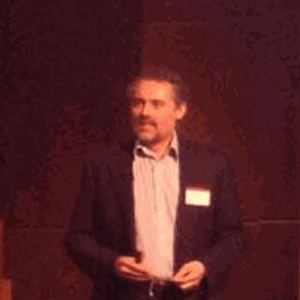Let us forget theory for a moment, and concentrate on the practice of automation. Alan will describe lessons learned from both success and failure; as a tester, an automator, and a manager. But more importantly, you will discover how to apply these lessons and improve your automation. Learn how to stay focused, how to experiment and still add value, how to manage even if you cannot code, and more…
Planning
Prior to the event I thought that the audience appeared to be a mix of practitioners and managers which was useful since I planned to talk about my experiences of automation from a perspective of a practitioner, and as a manager.
I know what it is like to be a practitioner who is managed by people with no automation experience, so I plan to offer advice from my experience on how to help those managers.
Similarly, I included advice for those managers, on how to deal with and recruit, the automation practitioners:
- without putting irrelevant overhead in their way
- without being bamboozled and led down the wrong path
I also delve into my experience to provide as many practical examples as I can on simple steps to take to ‘get’ or ‘keep’ your automation working, focused and improving.
About the talk
I planned to create an experience based talk pulling out lessons I’d learned from roles at different levels of seniority in the testing hierarchy. And as I worked on the talk I discovered that I hadn’t ever dived into the history of ‘automation’. I had learned about the history of programming and read a lot of older programming texts, all of which I had taken value from.
During the research for the talk I delved into the history of automation and was fascinated to discover such a close correlation between the issues and controversies of the 1950s and the concerns and issues with ‘Test Automation" in the present day.
I do like to ‘go to the source’ and delve into the history of the various topics I read, even if that simply means looking through the bibliography of a book and reading some of those, then looking through the bibliography of that book and … etc.
So I started reading older ‘automation’ books and was surprised to learn that:
- Automation is a young word and only came into popular usage in the 1950s
- Many of the management problems with ‘Automation’ were experienced at its introduction: training, staff skilling, staying up to date, maintenance, change in process, tracking, …
- Many of the controversies existed in the 1950s: unemployment fears, will automated processes replace all jobs, will everyone have to automate, …
So I pulled some of this into the talk as well, so it wasn’t just my experience I was presenting, it was also lessons learned, from a history of Automation, that prior to the talk I had been unaware.
I didn’t think the talk would be recorded so I captured a recording of a late rehearsal, which I will start to do with all my talks from now on, to build an archive of them later.
I created the slides to support the talk in a fast paced, new slide every 30 seconds or so. I think this also allows the main messages to be understood from the slides, although it does miss out some anecdotes.
If you would like to start your own investigation into the history of automation then I recommend “Automation and Society” from 1959, available for download from archive.org
Slides
I have released the slides to SlideShare
During the conference
People were kind enough to tweet during the talk and take photographs.
Woohoo time for the @eviltester at #tadnl ! I liked his talk on #agiletd a lot.
— Maaike Brinkhof (@Maaikees) June 18, 2015
How is this the first time I’ve heard @eviltester speak?! He’s brilliant #tadnl
— Alex Schladebeck (@alex_schl) June 18, 2015
#tadnl @eviltester pretty much sums it up. Great talk. pic.twitter.com/j3WbNSX1n9
— Kristian Karl (@kristiankarl) June 18, 2015
.@eviltester has some great examples and suggestions.
— Alex Schladebeck (@alex_schl) June 18, 2015
Start with why and do simple things first!!. Awesome talk from Alan Richardson @eviltester #tadnl
— Sathish Gogineni (@satgog) June 18, 2015
#tadnl Alan Richardson @eviltester Don’t start automation with tools, start by solving problems - hear hear! See pattern SET CLEAR GOALS
— Dorothy Graham (@DorothyGraham) June 18, 2015
Lesson learned from @eviltester: don’t build frameworks, solve problems #tadnl
— Bas Dijkstra (@_basdijkstra) June 18, 2015
“Build abstractions, not tools and frameworks” @eviltester #tadnl
— Tars Joris (@tarsjoris) June 18, 2015
Jumping in the pool with a tool can be a risk… RT @j19sch: Do stuff and learn! @eviltester at #tadnl. …
— ard_kramer (@ard_kramer) June 18, 2015
Do stuff and learn! @eviltester at #tadnl. Applies to swimming pools and to test automization.
— Joep Schuurkes (@j19sch) June 18, 2015
Hilarious description of tool selection problems by @eviltester at #tadnl
— Alex Schladebeck (@alex_schl) June 18, 2015
Automate or die, fun historic overview by @eviltester #tadnl pic.twitter.com/A72yOCJbuP
— Samuël Maljaars (@Smaljaars) June 18, 2015
Nice experience shares by @eviltester : Will be in our presentation also @ard_kramer #tadnl What to do next ? pic.twitter.com/4tJ8zBjlCo
— Derk-Jan de Grood (@DerkJanDeGrood) June 18, 2015
All Practical Lessons Learnt by @eviltester at #tadnl pic.twitter.com/0r9j7XjRXR
— Sandeep Thukral (@_thukral) June 18, 2015







